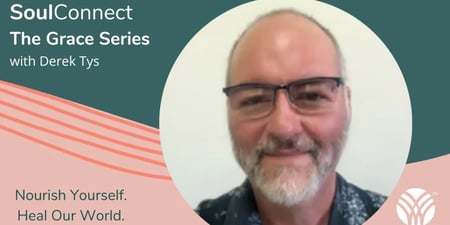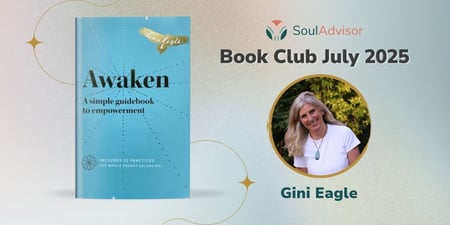Counselling
Counsellors near you
How can Counselling nourish you?
Counselling is a collaboration between a qualified counsellor and a client[1] to enhance self-understanding and promote mental health and wellbeing. Categorised as a talk-based therapy, counselling is intended to help you gain clarity and understanding of the challenges you face[2] in a confidential and non-judgemental setting.
Your counsellor will be able to provide you with support and strategies to help you cope with adversity and resolve concerns[3] you feel unable to conquer on your own. A counsellor will work collaboratively with you to help you see things from a different perspective, and use evidence-based techniques[4] to help you regain peace, balance and happiness in life.
Some counsellors also describe themselves as psychotherapists[5], which can cause confusion about the distinction between the two modalities. In general, psychotherapy is often seen as a distinctly defined role[6], while counselling services might be provided by practitioners such as GPs in addition to their primary line of work.
Psychotherapy tends to support changes at the level of your personality[7], and may help you define and embrace your identity for greater mental stability and satisfaction in life. Counselling, on the other hand, often focuses on a specific and precisely defined concern[8], such as coping with grief, managing anger, increasing intimacy in relationships, or overcoming addiction.
There is considerable overlap between counselling and psychotherapy, as well as psychology, which is another related modality. The discipline of psychology also has similarities to both counselling and psychotherapy. However, in Australia, the profession of psychology is regulated by the Australian Health Practitioner Regulation Agency (AHPRA)[9], and it is compulsory for all practising psychologists to be registered.
Trained counsellors are professionals who have undertaken dedicated tertiary education[10] in counselling or related fields such as psychology. However, in Australia, there is no legal requirement[11] for someone who provides counselling services to have formal training. Before choosing a counsellor, check the Australian Register of Counsellors & Psychotherapists[12], where all listed practitioners are professionally qualified and must undergo continuing development and clinical supervision.
Benefits of Counselling
As an evidence-based modality, counselling has been consistently reported to provide “substantial” benefits[13] for a range of different problems in robustly designed studies. Research suggests supportive counselling may be an effective treatment for depression[14] in adults, and there is evidence to suggest people suffering from depression may prefer to receive counselling therapy than take pharmaceutical antidepressants[15].
Family counselling is reported to possibly improve communication between parents and children[16], as well as potentially strengthen relationships between siblings. Relationship counselling may help reduce conflict and resolve problems within an intimate partnership[17] such as a marriage, improve communication and reduce distress. A counsellor can provide impartial support for couples going through a separation or divorce[18], helping both partners cope with anger and grief, find peace and learn to come to terms with this turning point in their lives.
Specialist counsellors may be able to help you navigate a path through adversities ranging from financial hardship to loss and bereavement[19]. Counselling may also help you find strategies for overcoming addiction[20], dealing with traumatic events[21], managing anxiety[22], and building confidence and self-esteem. The greatest overall benefit you might be able to receive from counselling is support in conquering the obstacles that keep you from leading a happy, fulfilled and peaceful life.
What to expect from a Counselling session
This modality can take various different forms, ranging from phone or online counselling[23] and one-on-one private counselling in person, to relationship counselling which may involve you and your partner[24] speaking to a practitioner. Sometimes, a counselling session intended to support people suffering from addiction, recovering from abuse or coping with serious illness[25] may be held in a group setting.
It is natural to be nervous during your first counselling session[26], so most practitioners will take care to make you feel safe and respected[27], and reassure you that counselling is a non-confrontational and non-judgemental process. Your counsellor will ask you about the concern that has prompted you to seek help, and what you might wish to gain[28] from counselling.
A counsellor is trained to listen actively and with empathy[29], and will know what questions to ask in order to help you unlock clarity and understanding about situations for which you might have been unable to find solutions by yourself. Your counsellor may also set you ‘homework’ tasks or advise you on what steps you can take[30] in daily life to help you achieve your goals.
Please consult your medical professional before you commence counselling, as they may be able to advise you about the most suitable practitioner for your needs. You do not need a referral to speak with a counsellor, but in Australia, Medicare rebates for counselling services may be available in some circumstances[31]. If you have any concerns at all about the process, also speak to your counsellor. Good rapport is very important, so if you don’t feel like you are obtaining the benefits you had hoped for, you are under no obligation to continue receiving counselling[32] from a particular practitioner.
References
1. Definition of Counselling. College of Counselling; [cited on 2024 Dec 2].
2. Counsellors. Better Health Channel; [cited on 2024 Dec 2].
3. Counselling. WIRE; [cited on 2024 Dec 2].
4. Evidence-Based Counselling. The EPICentre; [cited on 2024 Dec 2].
5. Home Practice resources Policy and practice papers Defining and delivering effective counselling and psychotherapy. The Australian Institute of Family Studies; [cited on 2024 Dec 2].
6. Relationship education and counselling. CHILD FAMILY COMMUNITY AUSTRALIA; 2015.
7. O’Hara D, O’Hara EF. Counselling and Psychotherapy: Professionalisation in the Australian context. Deleted Journal; 2015.
8. What is Counselling? Australia Counselling; [cited on 2024 Dec 2].
9. Home. The Psychology Board of Australia; [cited on 2024 Dec 2].
10. Counsellors. Better Health Channel; [cited on 2024 Dec 2].
11. How to get help. Queensland Government; [cited on 2024 Dec 2].
12. Home. The Australian Register of Counsellors and Psychotherapists; [cited on 2024 Dec 2].
13. Defining and delivering effective counselling and psychotherapy. The Australian Institute of Family Studies; [cited on 2024 Dec 2].
14. Depression. British Association for Counselling and Psychotherapy; [cited on 2024 Dec 2].
15. Home. The Australian Counselling Association; [cited on 2024 Dec 2].
16. Campli DD. 9 Family Counselling Benefits. DS Psychology Group; 2017.
17. Moloney L. Defining and delivering effective counselling and psychotherapy. CHILD FAMILY COMMUNITY AUSTRALIA; 2016.
18. Helping clients rebuild after separation or divorce. Counseling Today; 2020.
19. Counsellors and counselling. Healthdirect; [cited on 2024 Dec 2].
20. Campli DD. The Importance Of Counselling. DS Psychology Group; 2017.
21. Get the help you need to deal with Trauma & PTSD. Counselling in Melbourne; [cited on 2024 Dec 2].
22. Expert Anxiety Counselling in Perth – Effective Expert Anxiety Counselling in Perth – Effective Treatment and SupportTreatment and Support. Vision Counselling; [cited on 2024 Dec 2].
23. Irvine A, Drew P, Bower P, Brooks H, Gellatly J, Armitage CJ, et al. Are there interactional differences between telephone and face-to-face psychological therapy? A systematic review of comparative studies Journal of Affective Disorders; 2020.
24. About Relationship Counselling. ASSOCIATED RELATIONSHIP & MARRIAGE COUNSELLORS SYDNEY; [cited on 2024 Dec 2].
25. Counselling. WIRE; [cited on 2024 Dec 2].
26. What do counsellors do? ReachOut; 2023.
27. What counselling involves and what you can expect. Victims Counselling & Support Services; [cited on 2024 Dec 2].
28. Counselling Session | What will happen in my first counselling session? Vision Counselling and Psychology; [cited on 2024 Dec 2].
29. Principles of Active Listening. AIPC Online Article Library; 2009.
30. About. Counselling & Therapy Sydney; [cited on 2024 Dec 2].
31. Medicare. Life Supports; [cited on 2024 Dec 2].
32. Counsellors. Better Health Channel; [cited on 2024 Dec 2].
Frequently asked questions
Counsellors near you
Related articles
Categories
Browse counsellors by locations
Explore counsellors within Australia
Explore counsellors within Spain
Explore counsellors within United Kingdom
Explore counsellors within United States
Browse Counselling services by locations
Explore counsellors within Australia
Explore counsellors within United Kingdom


















